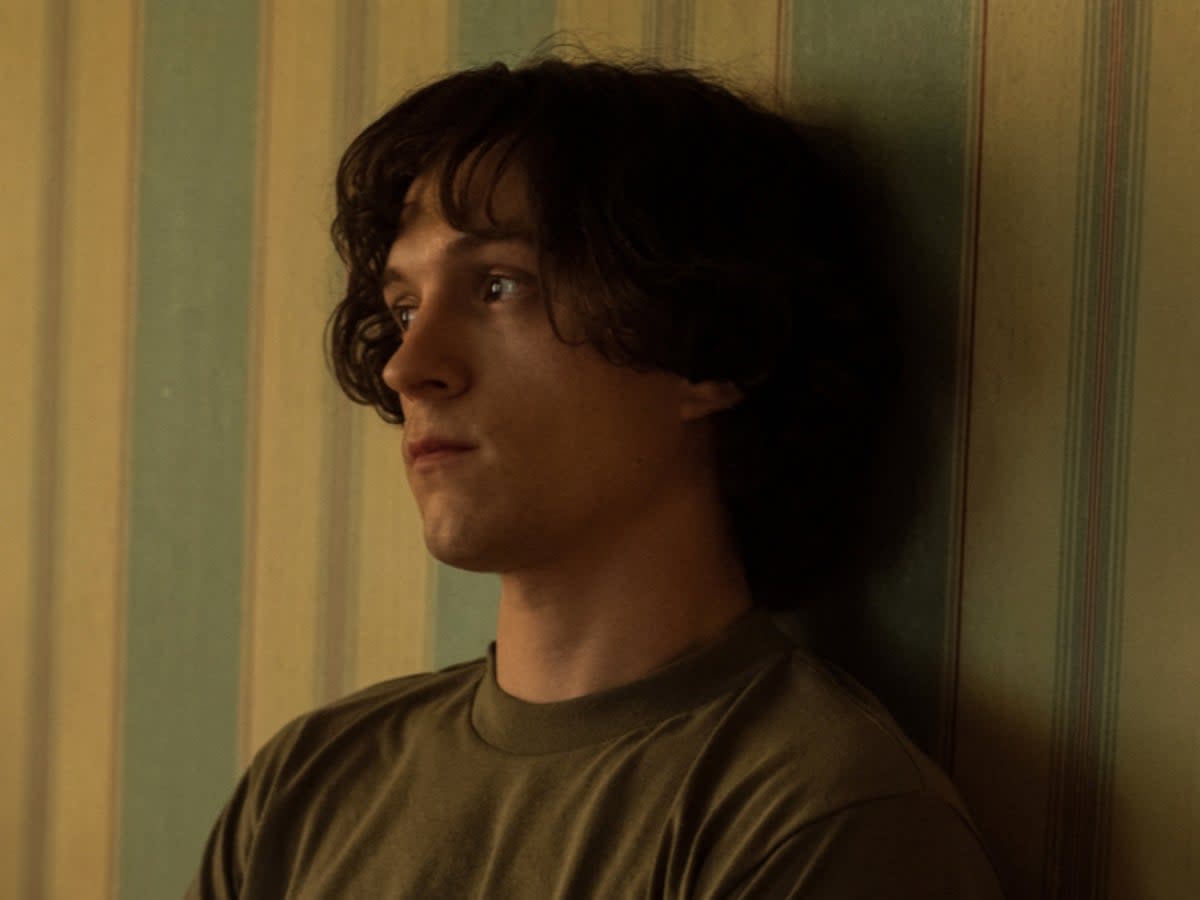The Crowded Room review: Tom Holland works hard in clichéd, generic muddle

When Henry Fonda, the great nice-guy leading man of 20th century American cinema, stepped out as villainous Frank in Sergio Leone’s Once Upon a Time in the West, audiences were enthralled. Squeaky clean, whiter than white Fonda, gunning people down in cold blood. It was a subversion of casting norms that would become typical – from Bryan Cranston following Malcolm in the Middle with Breaking Bad, to Robin Williams going full psycho in One Hour Photo – which captivated Fonda’s fans. The Crowded Room, a new Apple TV+ 10-parter, is but the latest instalment of this trend, with baby-faced Tom Holland playing a man accused of a series of heinous crimes.
But did he do it? The Crowded Room, which opens with a sequence in which Holland’s Danny and the mysterious Ariana (Sasha Lane) shoot up the Rockefeller Centre, is about something. If you have even the mildest curiosity about the show – or its source material, Daniel Keyes’ acclaimed 1981 non-fiction novel The Minds of Billy Milligan – you’ll know what that something is. But the show seems determined to give as little away as possible in the first few episodes, even as the title hints at what’s in store. Viewers, therefore, are thrown into the personal history of Danny Sullivan, a quiet, lank-haired artist, currently in the custody of the New York Police Department. Which is where he encounters psychologist Rya Goodwin (Amanda Seyfried), who’s been tasked with unriddling Danny’s complex life. “I’m just here to talk,” she tells her young charge, and talk he does.
Holland – best known on the small screen for Wolf Hall; best known on the big screen for, you know, Spider-Man – is an accomplished actor. He has the doe-eyed naïf routine down pat, even as it becomes increasingly disconcerting to see a 27-year-old man playing a highschooler. The role of Danny is a tricky one, straddling the line of being plausibly attractive to the hot girls (“I liked that you were different,” says Isabel (Emma Laird), “it made me anxious but it was exciting”), while also being an easy target for roving gangs of jock bullies. As his interrogative foil, Seyfried offers little that ChatGPT wouldn’t, especially as The Crowded Room’s cards remain resolutely close to its chest.
The chronology of The Crowded Room creates two different shows: one a procedural two-hander, the other a fairly lavish 1970s coming-of-age story. Reconciling these threads is rather like trying to square an episode of Line of Duty with a volume of Stranger Things. The intended genre remains elliptical. At times The Crowded Room flirts with horror, though, generally, it stays in the bildungsroman lane, hinting, at some point in most scenes, at something more cryptic. Getting high, getting paid, getting laid: all the beats of teenage life are here, just with a few more ominous pronouncements. “What exactly are you accusing me of?” Danny asks Rya, and, at times, it’s hard to know.
The generic muddle is abetted by a script that struggles with cliché, both in the plot and the dialogue. “I wasn’t a very popular kid at school,” Danny’s voiceover announces. “Turns out sad and moody didn’t do me any favours at home either.” Scenes that involve drug dealers, gay clubs and international paternity searches all feel like they could’ve been ripped from any modern Young Adult story. Meanwhile imagery like fireflies, dancing kites and eclipses add a visual triteness. Much has been made, in the press, of the casting of Emmy Rossum (just nine years Holland’s senior) as Danny’s mother, but it is not even the most perplexing of The Crowded Room’s decisions. It feels like a story that creator Akiva Goldsman (who, if you want a hint at the show’s something, previously won an Oscar writing A Beautiful Mind) wanted to tell, without knowing precisely how.
The Crowded Room doesn’t work (other than an exquisite title sequence), which is a shame because, individually, the elements are good. From Holland to Lane, Rossum to Jason Isaacs (who appears as an implausible, urbane Englishman), the cast is strong. The basis of the story – which has been dramatised before, usually more explicitly in the horror genre – is compelling. But The Crowded Room is an unsatisfying blend of these components, which takes, at best, a curate’s egg, and scrambles it.


